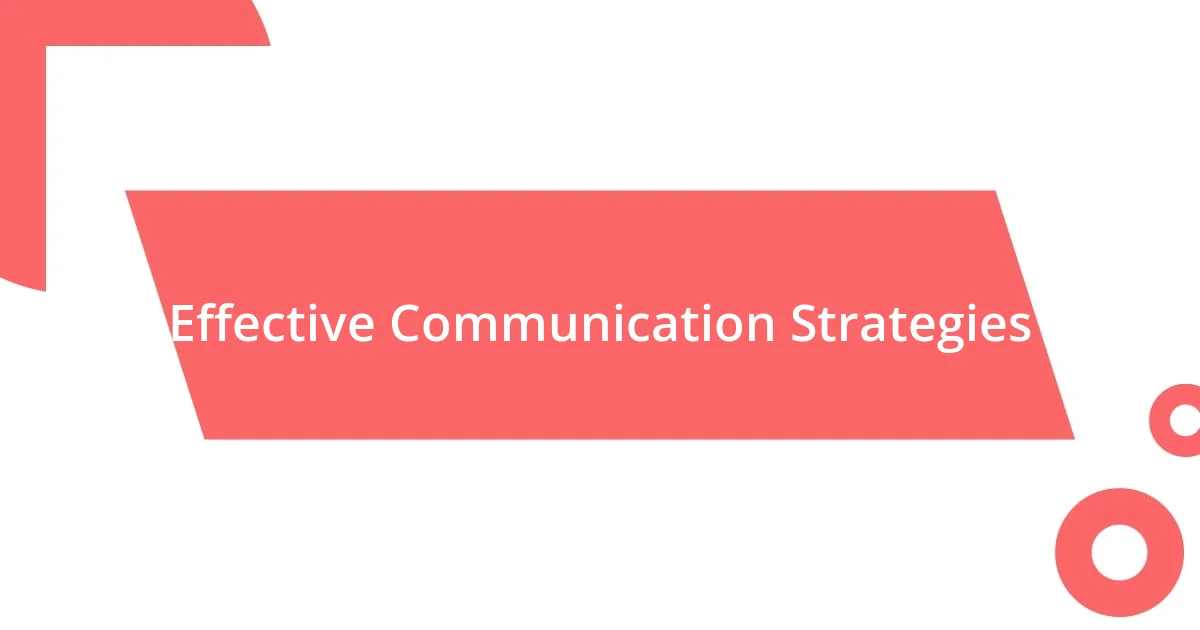Key takeaways:
- Fan trust is essential for emotional and financial investment, fostering community and resilience during challenging times.
- Building trust requires open communication, consistency in actions and messages, and engaging fans through personal connections and feedback.
- Long-term relationships are strengthened by celebrating shared milestones, being transparent about challenges, and maintaining ongoing dialogues with fans.

Understanding Fan Trust Importance
Fan trust is crucial for any team or brand because it creates a strong connection that goes beyond mere loyalty. I remember attending a game where the atmosphere was electric, not just because of the score, but because I felt like I was part of something bigger. That sense of belonging is rooted in trust; when fans believe in their team, they invest emotionally and financially.
Think about it: when was the last time you passionately supported a team or brand? I know from personal experience that trust transforms casual spectators into die-hard fans. This deep level of commitment can drive engagement, whether it’s through attendance, merchandise purchases, or social media interactions. Without trust, those connections fray, and fans easily drift away.
Moreover, trust allows for resilience during challenging times. I’ve seen teams recover from tough losses primarily because the fans stood by them, believing in a brighter future together. Feeling connected to a team fosters a sense of community and shared experience, which is invaluable when the going gets tough. Ultimately, cultivating fan trust is an essential strategy for long-term success.

Key Elements of Building Trust
Building trust with fans requires a blend of transparency, consistency, and engagement. I’ve found that when teams openly share their decisions and strategies, it breaks down barriers. For example, I once attended a fan forum where the coach candidly talked about the team’s challenges. That honesty made me feel more connected and invested, as it showed they valued my perspective.
Here are some key elements I believe are essential in fostering that trust:
-
Open Communication: Regularly share updates, successes, and setbacks. Fans appreciate the honesty.
-
Consistency: Delivering on promises consistently builds credibility. Whether it’s on-field performance or fan engagement, reliability matters.
-
Fan Engagement: Involving fans in decision-making processes, like voting on jerseys or naming mascots, can enhance their sense of belonging.
-
Accountability: Acknowledging mistakes and showing a commitment to improvement can transform potential backlash into support.
-
Emotional Connection: Creating moments that resonate emotionally, like charitable initiatives, helps solidify fans’ loyalty beyond just sports.
Trust, after all, is built on shared experiences and a genuine understanding of fans’ values and emotions.

Effective Communication Strategies
Effective communication lies at the heart of building fan trust. I recall a time when a team created a live Q&A session with coaches and players. The interactions were genuine, allowing fans to voice their concerns and get real-time answers. This approach not only made me feel heard but also strengthened my loyalty, as it demonstrated that the team really cared about our opinions.
Listening is just as important as speaking. For instance, my favorite sports team launched a feedback survey after the season to gauge fan feelings about the experience. When I received a follow-up email thanking me for my input, I realized they valued my voice. It’s moments like this that transform a one-sided conversation into an engaging dialogue, fostering a deeper connection.
Moreover, utilizing various communication channels effectively is crucial. I’ve noticed teams that leverage social media, newsletters, and podcasts tap into different fan demographics. By diversifying their communication, they ensure that everyone feels included in the conversation, which in turn enhances their trust factor. I can’t help but appreciate brands that prioritize reaching out through multiple avenues, making me feel more connected and informed.
| Communication Strategy | Example |
|---|---|
| Live Q&A Sessions | Engaging fans in real-time conversations |
| Feedback Surveys | Understanding fan sentiments post-season |
| Diverse Channels | Using social media, newsletters, and podcasts |

Engagement Techniques for Growing Trust
Engaging fans effectively can transform how they perceive and trust a team. I remember attending a community event where fans got to meet the players and coaches up close. It was such a joy to chat casually with them, hearing their stories and sharing laughs. Those interactions really made me feel like part of a family, creating bonds that go beyond just being a spectator at games.
Another powerful engagement technique is storytelling. When a team shares personal stories, whether about their journey or community involvement, it captures attention and fosters connection. I’ve seen teams highlight charitable work through touching video segments. One particularly poignant story about a player visiting children in a hospital left a lasting impression on me. It wasn’t just about the game anymore; it showed that the team genuinely cares about the community, deepening my trust in their values.
I’ve also found that interactive content can spark meaningful connections. For instance, a tweet asking fans about their favorite game moments led to an outpouring of responses. It was a delight to share memories with others and see the enthusiasm in their replies. When fans feel invited to share their thoughts, it cultivates a sense of ownership in the community. Isn’t it amazing how a simple question can foster such strong camaraderie?

Consistency in Actions and Messages
When I reflect on my favorite teams, one thing stands out: their consistent actions and messages. There was a season when my beloved basketball team confidently stated their commitment to player development. Each game, I observed the same players getting significant court time, reinforcing the message they sent. This consistency between what they said and what they did created an unwavering trust in their strategy. It’s almost like the team was inviting me to see the bigger picture; they clearly cared about nurturing talent, and I appreciated that.
On the flip side, I’ve seen teams falter when their messages don’t align with their actions. A football club I followed launched a campaign promoting community involvement. However, when their players didn’t show up for scheduled charity events, it felt disingenuous. As a fan, I felt a disconnect; it was disappointing to witness such inconsistency. It made me question their integrity, demonstrating how critical it is for organizations to walk the talk.
Moreover, I find that consistency builds familiarity, which is crucial in developing fan trust. I remember tuning into a podcast where the club regularly shared updates and insights about their plans. Hearing the same key messages over and over made me feel like I was part of the team’s journey. It fostered a sense of belonging, almost like they were keeping me in the loop as a valued member of their extended family. Isn’t it interesting how a clear and consistent message can turn casual fans into passionate supporters?

Monitoring and Adapting to Feedback
Feedback isn’t just something to collect; it’s a vital part of building trust. I recall a time when a team asked fans for their input on a new merchandise line. They hosted a survey that allowed us to voice our preferences, and I felt genuinely valued. It wasn’t just about selling products; they were including us in the creative process. I found it inspiring to see how my voice could shape something I cared about. Could there be a better way to foster that sense of community?
Adapting based on feedback goes a long way in demonstrating commitment to fans. I remember when a local soccer team revamped their game-day experience after hearing concerns about parking and crowd management. They implemented new structures that significantly streamlined our arrival. The responsiveness made me feel like the organization truly listened. It was as if they were saying, “Your experience matters.” Doesn’t that level of attentiveness strengthen our bond with the team?
Regularly monitoring feedback channels also opens doors to ongoing dialogue. One day, I noticed a trend where fans expressed dissatisfaction with the team’s social media engagement. The organization promptly responded by launching a live Q&A series with players, transforming what could have been a rift into a celebratory connection. I felt energized seeing the players directly addressing fans’ concerns. Have you ever felt that spark of excitement when your voice is heard? That’s the magic of maintaining a feedback loop; it creates a living, breathing partnership between fans and teams.

Long-Term Relationship Building Tips
Building long-term relationships with fans requires a genuine commitment to communication. For instance, I often recall when a sports organization would reach out to fans after each season to discuss their experiences. These conversations weren’t just formalities; they felt like heart-to-heart talks where fans could share their highs and lows. It was refreshing to see leadership genuinely care about what we thought. Don’t you feel more connected when organizations invite you to share your story?
Another significant tip I’ve learned is the power of celebrating milestones together. I remember the first anniversary of my favorite team’s championship win; they hosted an event where fans could relive that unforgettable moment together. It was magical to be surrounded by fellow supporters, sharing laughter and memories. It felt less like an event and more like a family reunion. What better way to fortify relationships than to reminisce together about shared triumphs?
Lastly, I advocate for being transparent about challenges as much as successes. I appreciated a time when a club openly addressed a tough season. They shared their plans for improvement during a fan forum. It’s easy to cheer when everything is going well, but I found strength in knowing they valued honesty over hiding behind glossy reports. Isn’t it empowering when organizations invite us into their journey, including the rough patches? Engaging in this candor not only solidifies trust but also lets fans feel they are part of a shared mission.















